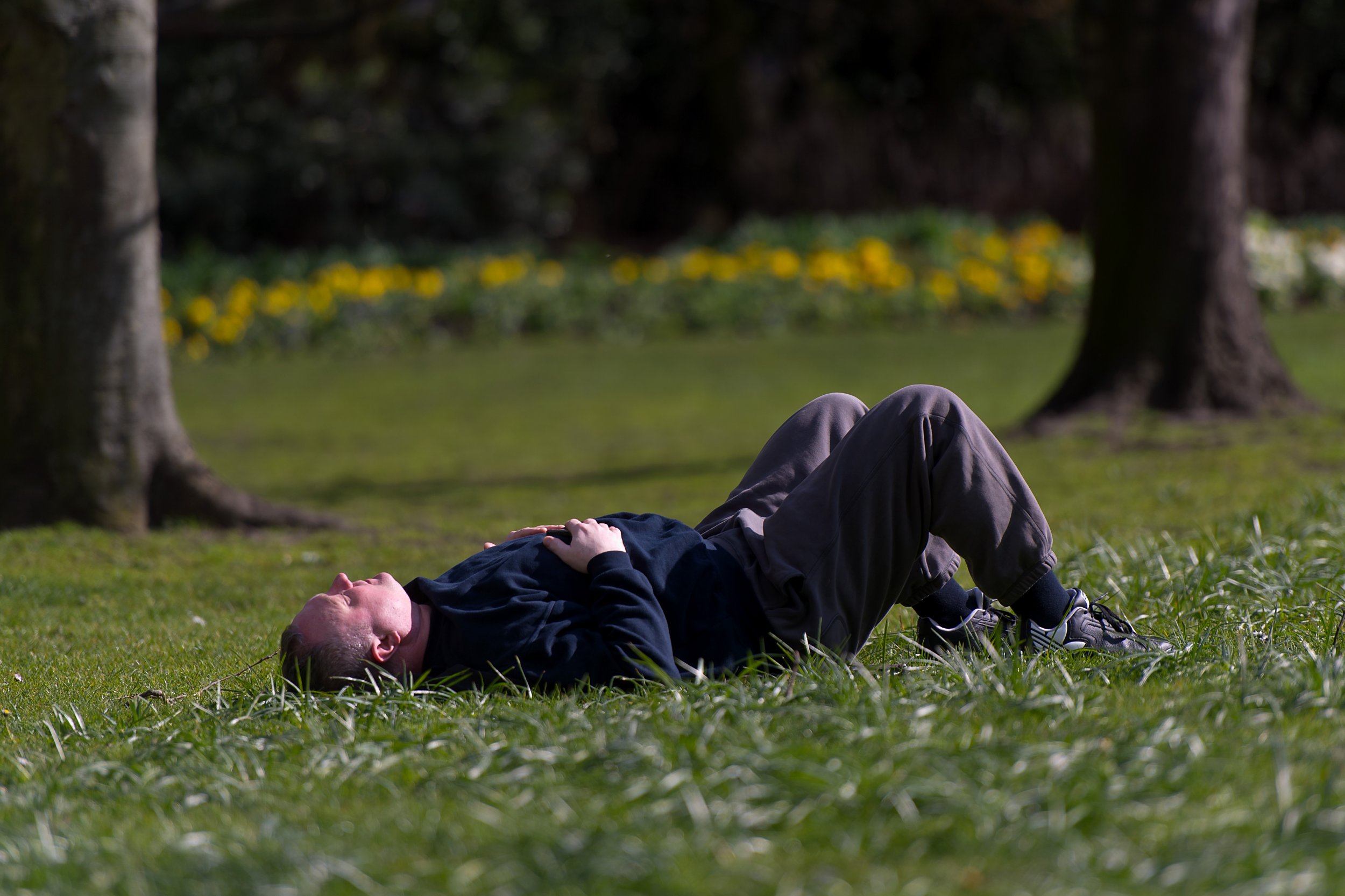
Sleep talking is funny, but we don't know much about what's going on when we mumble at night. A new French study is the first to properly investigate sleep talk from a scientific standpoint. The findings give new insight into how the sleeping brain works. And it turns out the sleeping brain has quite a mouth on it.
Dr. Isabelle Arnulf, a researcher at the European Sleep Research Laboratories in Paris, and her team delved into the language of the resting brain by tracking the speech of 232 sleeping adults. Volunteers were almost evenly split among men and women, and their ages ranged from 20 to 49. The group was very "sleep diverse"— only 15 of the volunteers had perfectly healthy sleep habits, and the remainder had sleep disorders such as rapid eye movement sleep behavior disorder, sleep walking/sleep terrors, and sleep apnea.
The study—the first of its kind—revealed that sleep talking really isn't all different from normal speech. And that the brain at rest is anything but.
Related: Sleeping with dogs is bad for your sleep and health
Some of the patterns may sound similar to our daytime talking. Of the speech the researchers were able to decipher, a the majority was grammatically correct. The word "no" was by far the most common word featured in sleep talking, appearing in 21.4 percent of all the speech clauses. Nearly 10 percent of the utterances contained profanities. Verbal abuse, in which the sleeper was insulting or condemning and unseen companion, was also common.
The study, published in the journal Sleep, also found that men sleep talk more than women and most sleep talkers continue to take terms in conversation, leaving a moment of silence for their dream partner to answer. The work, Arnulf told Newsweek by email,"opens an incredibly rich window into the sleeping brain and how it works."
Related: World mental health day: how sleep can literally make you go crazy
The findings also show that certain areas of the brain associated with speech, such as Wernicke's area, which is responsible for language meaning, and Broca's area, which is responsible for speech production, are also connected and activated during sleep. Arnulf does not know why the sleep talking heard in the study was so abusive and filled with profanities. She theorized that it may be reflective of the dreams, which are more often negative and violent than they are positive and happy.
The research helps to set the foundation for our understanding of sleep talking, a behavior we really know little about. The National Sleep Foundation says several factors can increase your likeliness to talk in your sleep, such as stress, not getting enough sleep, consuming large amounts of alcohol or suffering from a fever. Beyond that, we don't know much about our one-sided nighttime conversations.
Now that this research is underway, it might be a good time record a friend's late-night utterances for analysis. You know, for science.
SaveSave
Uncommon Knowledge
Newsweek is committed to challenging conventional wisdom and finding connections in the search for common ground.
Newsweek is committed to challenging conventional wisdom and finding connections in the search for common ground.
About the writer
To read how Newsweek uses AI as a newsroom tool, Click here.








